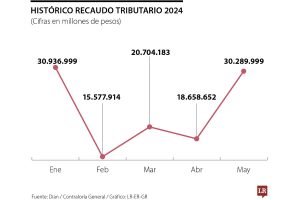In a multipolar world, competition for global power is increasingly leading countries to protect their military and economic interests by erecting new barriers to cross-border commerce in key industries such as technology and renewable energy. As geopolitics and national security are to a growing degree driving how goods flow and where big capital investments are made, it’s that much more crucial for investors to know how to pick through a dizzying amount of information and focus on what’s relevant. But it’s hard to do with a seemingly endless series of alerts lighting up your phone.
In particular, potential ripples from U.S.-China relations as well as U.S. military involvement in the Middle East could be important for investors. Morgan Stanley Research pared back the headlines and market noise to home in on three key takeaways.
Gauging Red Sea Disruption
Commercial cargo ships in the Red Sea handle about 12% of global trade. Attacks on these ships by Houthi militants, and ongoing U.S. military strikes to quell the disruption, have raised concerns that supply chains could see pandemic-type disruption—and a corresponding spike in inflation.
However, my colleagues and I expect the flow of container ships to remain robust, even if that flow is redirected to avoid the Red Sea, which serves as an outlet for vessels coming out of the Suez Canal. Although there has been a recent 200% surge in freight rates, there have not been fundamental cost increases for shipping. Additionally, there’s currently a surplus of container ships. Lengthy reroutes around the Southern tip of Africa by carriers to avoid the conflict zone may cause delays, but they should have minimal impact to inflation in Europe. The risks to the U.S. retail sector should be similarly manageable.
Resilience in Oil and the Countries That Produce it
The Middle East is responsible for supplying and producing the majority of the world’s oil, so escalating conflict in the region naturally puts pressure on energy supply, as well the economic growth of relevant countries. However, the threat of weaker growth, higher inflation and erosion of support from allies offer these countries an incentive to contain the conflict. As a result, there’s unlikely to be negative impact to the debt of oil-producing countries in the region. Crude oil shipments should also see limited impacts, though oil prices could spike and European oil refiners, in particular, could face pressure if disruption in the Strait of Hormuz, which traffics about a fifth of oil supplies daily, accelerates.
Opportunities in Asia Emerging in Japan and India
China has significant work to do to retool its economic engine away from property, infrastructure and debt, leading Morgan Stanley economists to predict gross-domestic product growth of 4.2% for 2024 (below the government’s 5% target), slowing to 1.7% from 2025 to 2027. As a result, China’s relatively low equity market valuation still faces challenges, including risks such as U.S. policy restricting future investment. But elsewhere in Asia—particularly in standouts Japan and India—positive long-term trends should drive markets higher. These include fiscal rebalancing, increased digitalization and increasing shifts of manufacturing and supply hubs in a multipolar world.
For a deeper insights and analysis, ask your Morgan Stanley Representative or Financial Advisor for the full report, “Paying Attention to Global Tension.”







